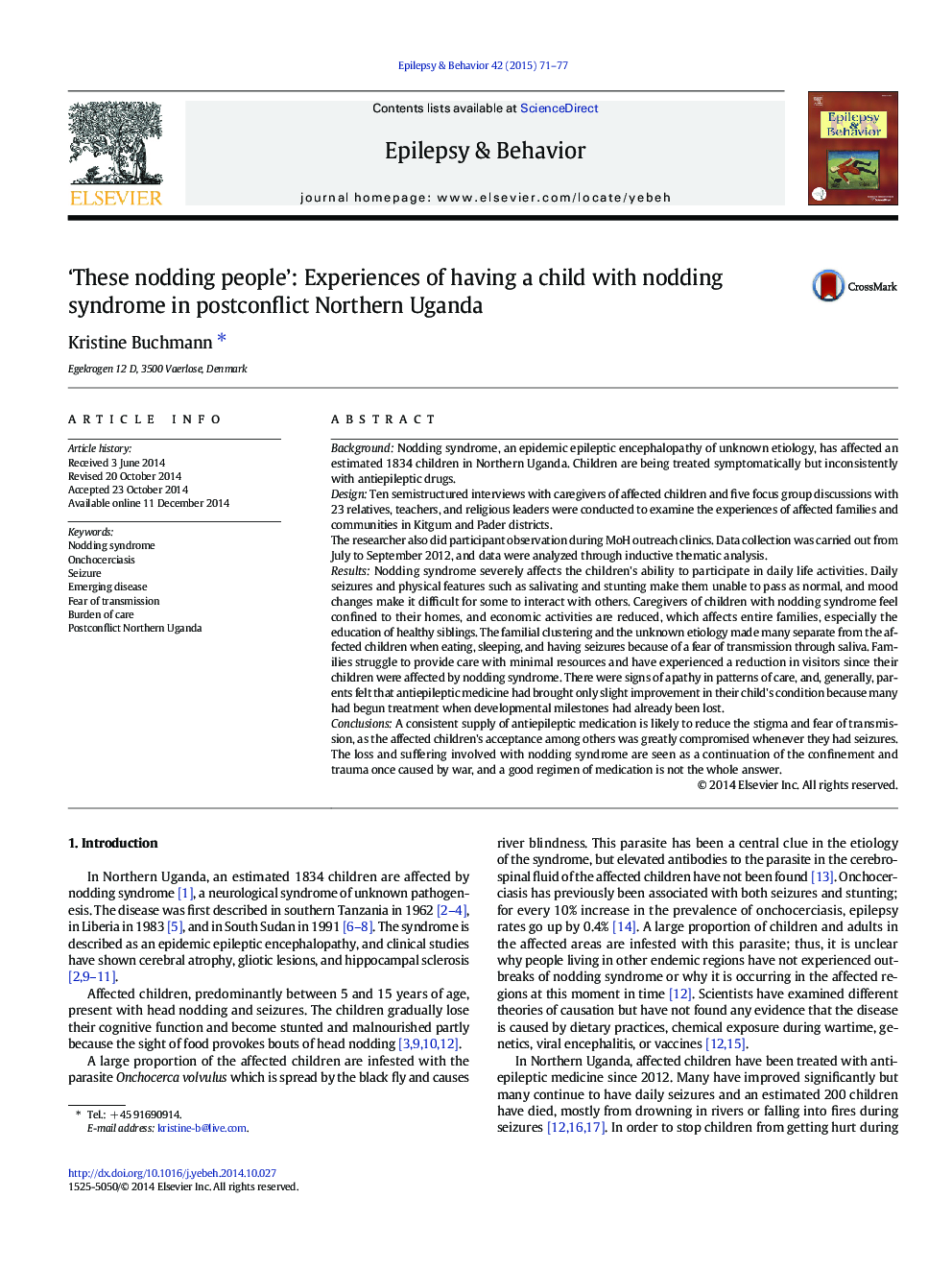| کد مقاله | کد نشریه | سال انتشار | مقاله انگلیسی | نسخه تمام متن |
|---|---|---|---|---|
| 3049607 | 1579847 | 2015 | 7 صفحه PDF | دانلود رایگان |
• This study describes the experience of being victims of an unknown emerging disease.
• The children's acceptance was greatly compromised whenever they had seizures.
• Caregivers of children with nodding syndrome feel confined to their homes.
• A fear of transmission has brought a reduction in social support.
• The suffering should be seen in the context of a society disrupted by conflict.
BackgroundNodding syndrome, an epidemic epileptic encephalopathy of unknown etiology, has affected an estimated 1834 children in Northern Uganda. Children are being treated symptomatically but inconsistently with antiepileptic drugs.DesignTen semistructured interviews with caregivers of affected children and five focus group discussions with 23 relatives, teachers, and religious leaders were conducted to examine the experiences of affected families and communities in Kitgum and Pader districts.The researcher also did participant observation during MoH outreach clinics. Data collection was carried out from July to September 2012, and data were analyzed through inductive thematic analysis.ResultsNodding syndrome severely affects the children's ability to participate in daily life activities. Daily seizures and physical features such as salivating and stunting make them unable to pass as normal, and mood changes make it difficult for some to interact with others. Caregivers of children with nodding syndrome feel confined to their homes, and economic activities are reduced, which affects entire families, especially the education of healthy siblings. The familial clustering and the unknown etiology made many separate from the affected children when eating, sleeping, and having seizures because of a fear of transmission through saliva. Families struggle to provide care with minimal resources and have experienced a reduction in visitors since their children were affected by nodding syndrome. There were signs of apathy in patterns of care, and, generally, parents felt that antiepileptic medicine had brought only slight improvement in their child's condition because many had begun treatment when developmental milestones had already been lost.ConclusionsA consistent supply of antiepileptic medication is likely to reduce the stigma and fear of transmission, as the affected children's acceptance among others was greatly compromised whenever they had seizures. The loss and suffering involved with nodding syndrome are seen as a continuation of the confinement and trauma once caused by war, and a good regimen of medication is not the whole answer.
Journal: Epilepsy & Behavior - Volume 42, January 2015, Pages 71–77
